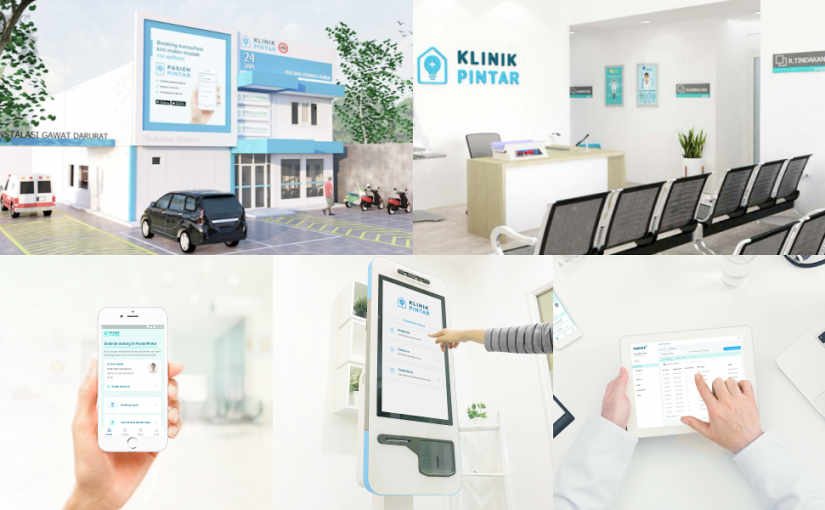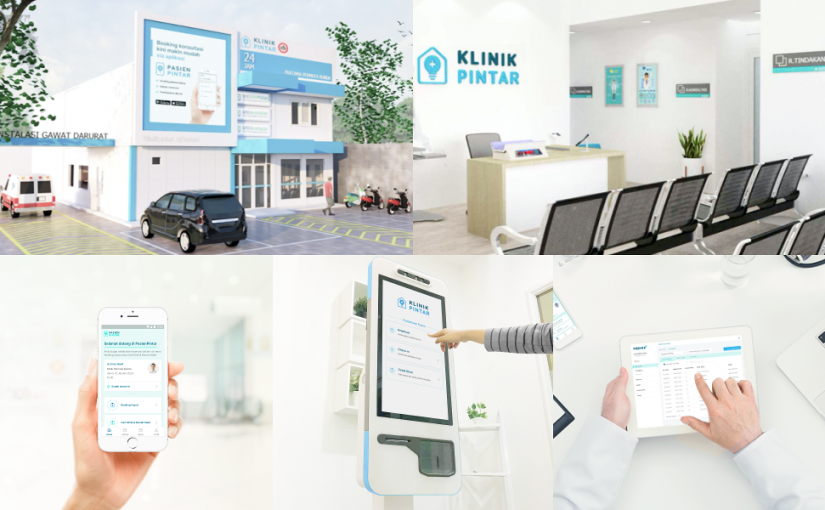Healthtech startup Medigo announced it has secured pre-series A funding of an undisclosed amount. There are three investors involved in this new funding, the existing Venturra Discovery, and two new investors: Golden Gate Ventures and Kenangan Kapital participated as an angel investor by Kopi Kenangan’s Co-founder, Edward Tirtanata.
In his interview with DailySocial, Co-founder and CEO of Medigo Harya Bimo revealed that this new funding will support the company’s expansion plan to focus on becoming a clinic chain provider in Indonesia.
“Previously, the clinic chain was one of Medigo’s initiatives to strengthen the healthcare ecosystem in Indonesia. We are now focus on becoming a clinic chain. So, our revenue stream will be mainly from clinics,” said the man better known as Bimo.
On a separate occasion, Edward Tirtanata revealed his reasons for being involved as an angel investor in Medigo. He considered that currently there is still a big gap in the Indonesian health industry. It is undeniable that the clinic is quite the main goal of the Indonesian people considering the high cost of the hospital (RS).
The standardization of clinics in Indonesia is currently still low, so not all people are able to obtain the same health care in every region. With the support of digital platforms, Indonesia can improve the standardization of its clinic ecosystem.
“This is why this pivot can be a game changer. Not only for Medigo’s business, but also for Indonesia’s [health industry]. We made a small bet in the beginning, but Medigo is now showing promising results, even during the pandemic,” he said.
Aim to transform Indonesia’s health industry
Currently, Medigo has partnered with 73 clinics in 42 cities in Indonesia. According to Bimo, the number of partnerships will continue to be increased next year and will be followed by the presence of new services, such as telemedicine.
Klink Pintar offers a solution through a profit sharing system with clinic owners. This collaboration is in the form of providing technology solutions to digitize business processes and services, standardization, and investment that can help clinic owners develop their business and increase value-based care. Two clinics have been built by the end of 2019.
Medigo has started to fully focus on becoming the clinic supply chain since the beginning of 2019. This is because the first approach through the hospital is considered difficult to accelerate. Initially, Medigo had a mission to connect all health ecosystems in Indonesia from upstream to downstream, from patients, medical personnel, clinics, hospitals, to laboratories.
It turns out that in his journey, Medigo realized that the nature of the hospital industry is to have a long bureaucratic chain. Bimo admitted that it took him almost one year per hospital to carry out the implementation, such as platform integration and HR training.
He said this strategy is quite the right one because it reaches more on the grassroots segment. In addition, there are more clinics than hospitals in Indonesia. According to the data from the Ministry of Health per 2018, there are 2,813 hospitals in Indonesia, while there are 8,841 clinics and 9,993 health centers.
“When developing the clinic management system, more than 300 clinics registered on our platform. Only, the usage is quite low. We started to research the clinic to find out what the problem is. Is technology the main problem or is there anything else that hasn’t been resolved?” Bimo explained.
From this research, Medigo continued to prepare plans in July 2019. One of the realizations was to build a Klinik Pintar (Smart Clinic) by collaborating with the Indonesian Doctors Association (IDI) in December 2019 and officially launched in February 2020.
Pivot during pandemic
Before the pandemic, Klinik Pintar was divided into two models, independent development or collaboration with existing clinics. For the second option, Medigo can manage all existing clinic operations. There are clinics managed jointly with its owner.
When the Covid-19 pandemic occurred, the third Klinik Pintar planned to be built in March was hampered. This development requires face-to-face and continuous monitoring, while the social distancing policy does not allow this plan to continue. Even though his team has tried to provide a seamless experience to reduce interactions, people still tend to be reluctant to come to hospitals or clinics during a pandemic.
Medigo then decided to re-evaluate its pivot strategy considering the pandemic situation did not allow the startup which was founded in 2018 to continue with the Klinik Pintar partnership model at that time.
“At first, we thought this [pivot] should partner with several hundred physical clinics that can be managed by yourself. Due to pandemic, we are trying to see what are the real focus and values we aim for from the entire healthcare ecosystem. Now, we have strengths where there aren’t many who play in [the clinic supply chain],” he explained.
Medigo finally performed a repositioning strategy with two new business models, (1) continuing to build a physical clinic that would be 100 percent managed by Medigo and (2) increasing cooperation with existing clinics. He said his main focus was on the second model by expanding services rather than building a new physical clinic.
Bimo said pivot with the new business model can be effective. Even during the pandemic situation, the presence of digital communication platforms (Zoom, WhatsApp, Google Meet, and others) has greatly helped companies build trust with clinics throughout Indonesia.
Although it was down for several months, Medigo’s business is progressively growing. The peak, last May, Medigo obtained an increased rate of service up to four times compared to April. In fact, Bimo said that Medigo’s business has earned healthy margins every month until now.
Apart from that, it has also noted a significant increase in interactions on its platform. The interaction referred to is the connection among stakeholders in the health industry. Bimo admitted that this was his main KPI when Medigo was founded.
Currently, Medigo manages patient medical record data at its clinic partners. Of the 73 registered clinics, a clinic can have 100 patients per day. Along with the increasing number of Medigo partners in the future, his team targets the interactivity in the Indonesian health ecosystem will be even higher.
“Our pivot already has validation and the business model is clear. We have a demand that we can answer, the numbers prove it. It’s just how we proceed vertically, such as clinical acquisitions and service scale-up, and horizontally,” Bimo added.
To date, Medigo is focusing on expanding access to Covid-19 testing in clinics to all regions in Indonesia. His team is also conducting a proof of concept (POV) for teleconsulting specialist doctor services.
“We are aware that Covid-19 has an impact on mothers. They are not brave enough to go out for vaccines for their children because of this pandemic. We are worried that there will be a generation gap. Therefore, in the future we also want to become a distribution network for any vaccine. clinic, our ultimate goal is transparency and reduce monopoly potential.”
–
Original article is in Indonesian, translated by Kristin Siagian

